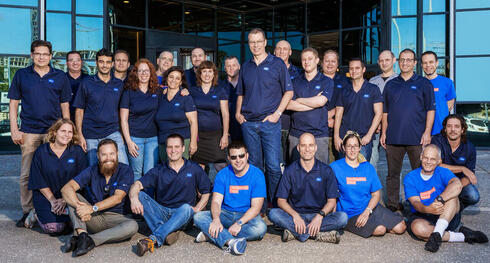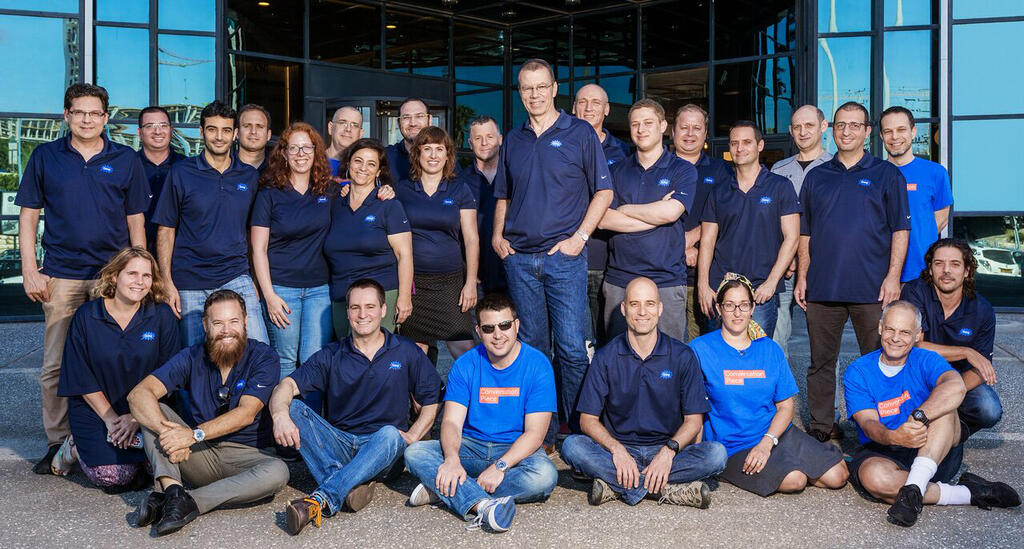
How can high-tech profit from the crisis
“This crisis will improve the efficiency of the companies. You need to have a shake-up once in a while,” says serial entrepreneur Ofer Bengal. Is this crisis a necessary step for Israeli high-tech to reach maturity?
The State of Israel has a love-hate relationship with the high-tech industry. In theory, it is clear to everyone that it is impossible to thrive without it and that we would not be in the economic position we have reached - one of the fastest growing countries in 2022 and a country that is knocking on the entrance doors to the club of the 10 richest countries in the world in terms of GDP per capita, without high-tech. However, many Israelis do not like to see the physical manifestation of high-tech prosperity in front of their eyes: legions of young people who earn more than their parents after a few years in the labor market, buy apartments for millions of shekels without blinking, and eat out at the most expensive restaurants. The truth is always somewhere in the middle: the State of Israel cannot prosper without high-tech, but the industry that has drowned in cheap money in recent years needs to grow up and stop behaving like a child who ate too many sweets. 2023 presents an opportunity for such maturation.
We were told over recent years that Israeli high-tech has maturedת and that is true, but it happened on the technological level. Israeli entrepreneurs learned to develop products that solve real problems and weaned themselves from developing exciting technologies that were sometimes elegant, but were not translated into essential products. This change also comes with the development of management skills, as with a good product you can become a large company with sales of hundreds of millions of dollars. But the real managerial maturation begins only now, with the understanding that companies are also a business that needs to generate profits.
Over recent years, Israeli high-tech became somewhat ostentatious as the sums of money that flowed into it swelled. The conditions were disconnected from the rest of the economy and highlighted what many already feared - that two economies are being created in Israel. One of high-tech and the other of low-tech, or the traditional economy.
Along with the difficulties that are expected for the Israeli economy in the coming period in view of the upheaval in the markets and the slowdown that is already being felt, and will be felt even more in the future, the current crisis also presents a great opportunity. This opportunity lies precisely in the layoffs that are being carried out these days by startup companies and the unicorns that were considered the most desirable employers until recently. Many employees are now discovering that the terms of employment that are perceived as similar to what is customary in Silicon Valley, also have a second, darker side, where you find out that you are laid off by email. If you haven't received an email, you can breathe a sigh of relief in the meantime and hope that another wave of layoffs doesn't come in a month.
In the current reality, many workers are beginning to focus more on stability and less on the glitter and unicorn fairy dust. Should this continue, they are expected to meet employers such as the defense industries and large companies from traditional fields who desperately need technological talents to make the long-awaited digital transformation. After all, the thesis on the growth of technology and the correct assumption that the current crisis is not similar to that of 2001, is based on the fact that all sectors need software, cloud services and cyber solutions, not only high-tech companies themselves.
In recent years, it has been difficult to impossible for these companies to compete for high-quality personnel against the high-tech companies, as evident from the famous campaign by the Israel Aerospace Industries that tried to lure candidates into jobs with meaning and Zionism, as opposed to jobs in the field of gaming, for example. On the less official level, there were instructions in some companies not to pursue the best candidates, but rather to recruit the less sought-after candidates, so that they do not quickly leave the company.
"There is still a huge shortage of tech workers, because normal companies also have to undergo the digital transformation. The market has simply been very unbalanced in recent years in favor of high-tech companies. On the part of the seemingly old economy companies, this moment when the unicorns discover that they do not have enough business to keep all the employees they recruited and the money is not infinite either, it's the right time to jump in and recruit the technological talent that has been let go," said Debbie Lovich, Managing Director and Senior Partner at Boston Consulting Group (BCG). According to her, "There will now be a lot of opportunities for acqui-hiring (acquiring a company to get its staff) because the traditional companies understand that to make a real transformation they need the technological talents."
One of the significant challenges that Israeli high-tech has not been able to crack, even at the height of the tide, is the integration of minorities in the workforce. Against the background of the lack of workers, many worker training programs were established, and working from home also made it possible to bring in workers from the periphery. Alongside Israel's unique problems in employing Arabs and ultra-Orthodox, there is also the worldwide challenge of integrating inexperienced workers known as "juniors" in the industry.
In recent months, recent bachelor's degree graduates in the computing professions testify to the difficulty of even getting a job interview, let alone a position in the leading high-tech companies. Cautious assessments in the field also speak of the fact that among those laid off are quite a few graduates of professional training courses, since these are often the least experienced workers. In the good times, companies said that they did not have time to invest in the training of inexperienced workers because they had to run ahead to meet the demands and expectations of investors. Now that the momentum has shifted, perhaps there is more time to explain and teach and perhaps also a preference for employees who cost less money than the experienced workers.
But in the short term the real economy is of course expected to be affected and the centrality of the high-tech sector to growth will be well felt. The cuts in the workforce, which have already reached thousands of employees, and the hiring freeze, are leading to a slowdown in salary levels and even a possible decrease. The cuts in goodies and parties are expected to hit surrounding industries that flourished thanks to the high-tech boom. This is expected to lead to a decrease in the collection of direct taxes as well, primarily income tax from the employees, and the techies, who make up about a tenth of the workforce in the economy but pay a quarter of the taxes.
Export revenues, of which high-tech is responsible for slightly more than half, are also expected to suffer given the fact that most high-tech companies already admit that customers are ordering products and services at a slower pace. The Israeli tech industry, especially its fastest growing parts over the last few years, operate mainly in the SaaS field. These are software subscription services, where growth often comes not only from recruiting new customers, but a significant portion of it comes from expanded use by existing customers. As soon as the clients freeze hiring as well, the growth of the Israeli software companies is also affected.
On the economic level, one of the interesting changes that may affect the real estate industry comes from two trends that contradict each other: on the one hand, high-tech companies are cutting back on employees and thus apparently need less office space, but on the other hand, employers today are demanding that employees come to the office, which maintains the need for office real estate. If last year a demand to return to work in the office, even for part of the week, was met with refusal and there were cases of entire teams leaving in favor of companies with full work from home options, the upheaval going through high-tech has changed the balance of power. Or Offer, the founder and CEO of Similarweb, caused a stir when he said in an interview with Calcalist that the managers prefer to see the employees in the office because working from home ultimately hurts performance. However, in practice, most companies already require employees to report to the physical office most days of the week, and the employees report with the understanding that otherwise they may lose their jobs.
The balance of power has changed, the market has become an employer's market, and hybrid work is now only one day from home and not three as it was in the past two years. As far as real estate is concerned, in the meantime many companies in the field that have committed to floors they do not need at the moment are making them available to young startups, which can reduce costs for both parties.
And what about within the industry itself? One of the interesting and positive effects may be the reduction of the high-tech industry's dependence on foreign money. Most of the capital that finances the startup companies will of course still be American, but it is likely that we will see a decrease from the 80% rate of recent years to lower levels. There are several reasons for this and the first is a tendency to stay in the local market during times of crisis. A major reason for the inflation in valuations was due to "tourist" money, mostly American funds that made one-time investments here, got burned and are not expected to be back any time soon. But there were also other entities that were very active, especially in mega rounds such as Tiger Global or Softbank, who are currently licking their wounds and do not plan to invest in the near future.
Even funds that are apparently still sitting on large sums, such as Insight Partners, for example, which is very active in Israel, and announced the raising of a $20 billion fund last year, will not be in a hurry to hand out the money. First of all, it already invested a large part of it even before the announcement of the closing of the fund, and beyond that, as a fund that is involved in its portfolio companies, it also keeps quite a bit of money aside to support them in the coming period which will not be easy.
Against this background, the place of the Israeli venture capital funds is expected to be more central in the coming period. During the hype period, when Tiger Global was ready to invest in a startup almost without due diligence, the entrepreneurs preferred it over investment from Israeli funds known to be more demanding. However, now those entrepreneurs are discovering that although it is more difficult to get money from an Israeli VC, during times of crisis these investors actually support their companies. "In the 1990s, companies were told that if they didn't have an American fund, they weren't worth it. In 2008, all the American companies disappeared at the outbreak of the crisis, and even now, try to pick up the phone and call Tiger Global and see if anyone even answers," says a senior executive in the Israeli venture capital industry.
But it goes beyond just the funds. In the fever of mergers and acquisitions that are being predicted for the second half of 2023, there is an opportunity to strengthen the Israeli ecosystem. According to Yaron Weizenbluth, partner and head of the high-tech cluster at PWC, the share of "blue and white" purchase transactions continues to be more significant than before. In 2022, 23 transactions were signed in which both parties were Israeli, which accounted for about a third of all transactions. Of course, American companies were still the majority with 56% of the transactions and as much as 85% in financial terms compared to only 8% for Israel. In the past year, several interesting deals were made in Israeli tech, the first of which was the acquisition of Seebo by the unicorn Augury in a deal valued at $100 million that should produce a stronger entity that will compete in the international market. In addition, Palo Alto purchased Cider Security for $300 million.
Israeli companies often know the real situation of their competitors and how attractive their product is compared to companies abroad because of the physical proximity of the offices, employee turnover, and of course personal acquaintance between the entrepreneurs themselves. This creates a favorable ground for mergers and acquisitions on a cultural level as well, even though the Israeli ego always stands in the way and there are no shortage of reminders of this, the latest of which is the canceled merger between Taboola and Outbrain.
In conclusion, facing new challenges in a period of a shortage (of cash) is not easy, but it is another necessary step that is required for Israeli high-tech on the way to maturity. Ofer Bengal, a serial entrepreneur who experienced both the crisis of 2001 and that of 2008 firsthand as CEO of high-tech companies and recently retired from active management of the unicorn Redis, thinks that the current crisis will be long, but also mentions that the positive cycle was unusually long. "The current crisis is different from the previous crises because it is sweeping and not focused on one sector. The previous crises resulted from a problem in technology or the financial sector, but there was no global economic cause as comprehensive as today's inflation," he says.
Bengal estimates that there will also be quite a few companies that will have to shut down and there will be more cuts in the companies that will survive because it is likely that not all of them fired all the workers needed to keep the company afloat. He speaks from experience: "In 2003, I closed one of the companies I founded after seeing that it was unable to generate revenue despite the great technology it had. There are people who are entrepreneurs at heart and will walk through walls even if there is no money in the market, but there is the other type who is enthusiastic about exits and becoming a millionaire. These entrepreneurs won’t be back until the market recovers. This crisis will improve the efficiency of the companies. The shake-up has already started and that's good. You need to have a shake-up once in a while. I've been in high-tech since 1989, and what's happening now is bad, but not terrible."
















